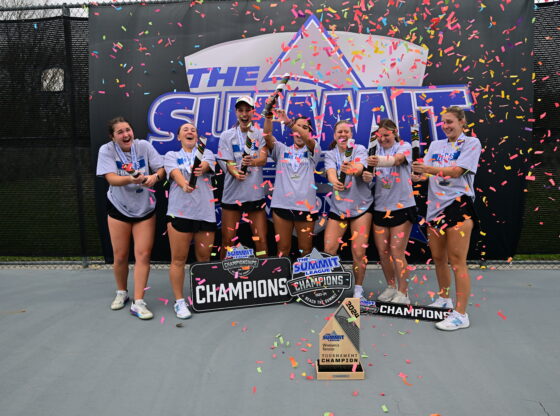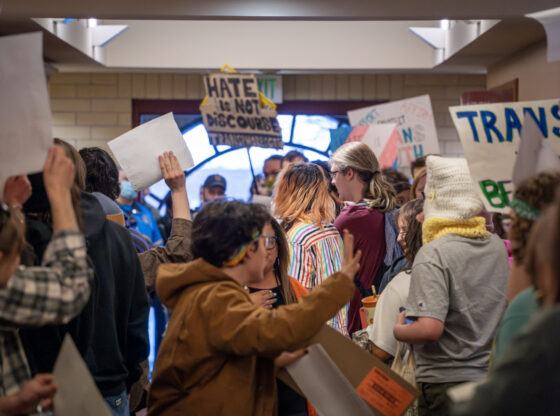Twenty years of teaching. Research, books and interviews published. Campaign and political journalism involvement. University of Denver political science professor Seth Masket has always known he wanted to go into politics.
The DU Clarion sat down with Professor Masket, in honor of his 20th year at DU.
The following transcript has been edited for clarity and conciseness.
Uhrain: Can you talk a little bit about your background?
Masket: This is my 20th year. I started here [in] the fall of 2004. Prior to that, I was getting my doctorate at UCLA. I was there for seven years. And before UCLA, I spent about five years working in Washington, D.C. in a couple of different political jobs. I was in the correspondence office of the Clinton White House from 1993 to 1996. I’ve had a few other government and campaigning jobs over the years. I got my undergraduate degree from UC Berkeley [in] 1991.
Most of my career, I’ve been researching political parties, one way or another. I have often focused on state and local political parties and the effect that they have on polarizing politics and getting around reforms, but more recently I’ve been working more on national politics. I did a book a few years ago on the Democrats between 2016 and 2020 [and] the lessons that they learned from Hillary Clinton’s loss. [Right now], I’m working on a book on the Republican Party [and] how they have been behaving since Donald Trump took an interest in politics and how presidential nominations work in that party, and how that’s different from what Democrats are doing.
Uhrain: What inspired you to go into political science?
Masket: I’ve been interested in politics since I was a kid. I’ve always found it fascinating and always wanted to be around it in one way or another … I worked as a journalist and I worked in political consulting and worked a few government jobs. And I always enjoyed that. But I also thought that people who were in government for a long time didn’t look so happy once they were in their 40s and 50s. It seemed like people who could study it from a little bit of a distance seem to have nicer lives, and that appealed to me. Eventually, I decided to get a doctorate and ended up very happy in this career.
Uhrain: What’s your favorite part of being a professor at DU?
Masket: [It would] have to be time with the students. [There’s] these great a-ha moments where I get all these students who have a real interest in politics. A few of them have done some volunteering, and they’re interested in different levels, but they haven’t necessarily had a chance to really sort of dig into what it means to research it… There’s just these moments when you know, things kind of click … [They] get what the purpose of politics is, and I just love those moments of awakening.
Uhrain: What has changed about DU since you started teaching here? What has stayed the same?
Masket: The school has honestly grown quite a bit. There’s more than 1,000 more undergrads now than there were back when I started my own department, [and] the political science department has grown. There were only six of us on faculty back then. And there’s 11 of us [now]. And, no offense to my earlier students who I love very much, but I think the quality of the student body has improved a lot. Students are just way more interesting with an array of backgrounds and experiences, [from] different parts of the country and are very enthusiastic about learning.
There’s still something about DU as a place to be both a researcher and a teacher. It has remained a place that really values both skills, and its faculty. It wants people who care about teaching and who also are interested in getting some scholarship done, and, we’ve been quite good at finding other faculty who are interested in that as well. And that’s hard to do. Most schools lean more towards one direction or the other, or they’re giant, public research universities or small liberal arts colleges, and DU has really always tried to the best of both worlds. I think, for the most part, they’ve succeeded.
Uhrain: Could you talk a little bit more about the research you’re pursuing right now?
Masket: “I am trying to understand how the Republican Party makes decisions — basically how it will decide its presidential nominee for next year. It seems to have largely made a choice in Donald Trump, but I’m sort of curious about the perspectives of the people who are in different levels of the party. Your typical activist people who are running state and county parties and how their attitudes for politics, for democracy, for the political system and how those things have changed over the last few years.
My impression is that you have this populist wing that took over the Republican Party in recent years with a very different perspective than the Republican Party used to [have]. [It] definitely has a very strong set of views about how things are supposed to work, and they’re not really interested in how things worked before. I’ve been spending a lot of time conducting surveys and interviewing people in Iowa and New Hampshire and tracking patterns in who’s running local political parties, and otherwise following a lot of events in this contest in real time. It’s a fun way to do research, but it’s just very lively, and, at this point, I don’t know the end product of this research I’m enjoying doing.”
Uhrain: With the primary elections coming up, what are some of your predictions?
Masket: Right now, it’s not looking like it’s going to be all that surprising. Donald Trump really seems to have gotten this all sewn up. But there are some really significant unknowns that could throw this thing overboard, and Trump is very likely to be a convicted felon by this point next year. And that doesn’t seem to change who Republicans want, but it will probably change some aspects of this race. He might get disqualified from some ballots.
So you have all these other candidates who are competing and doing debates and trying to raise money and find supporters. And they’re all sort of running for the role of understudy in case somehow Donald Trump is taken out of contention. I don’t think that’s a waste of anyone’s time — that’s probably a smart thing to be doing — but it also makes for a very weird race in which it looks totally not competitive, except it could become very competitive at any point.
Uhrain: Are there any trends should we look for when examining polls?
Masket: “I’ve been doing this survey of Republican county party shares all across the country, and I’m doing that every two months. One thing I’m just looking for is any changes we see there; they’re different from public opinion hold or other indicators. It doesn’t look hugely different [since] there hasn’t been a whole lot of change in recent months. If we actually see some people in the party changing their mind, I think it might show up there. The other thing would be to watch for changes in endorsement patterns. We can see who are members of Congress endorsing presidential or governors endorsing. For the most part, their Republican officeholders are leaning pretty strongly toward Trump, but if we start to see any of them shifting their opinions or some others starting to endorse one of his competitors, that can be a signal that there’s some important rethinking going on.”











